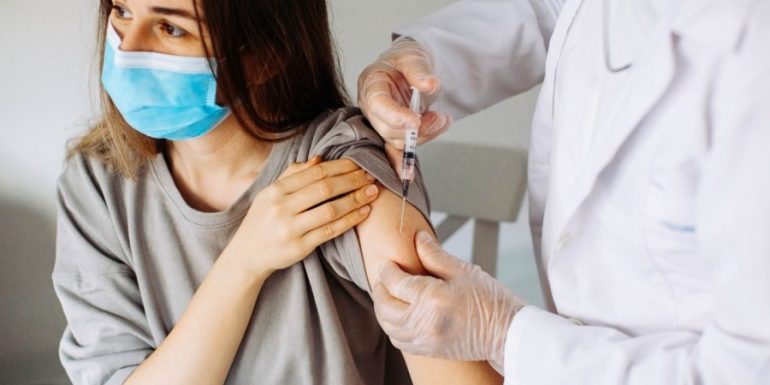Women who get a dose of vaccine Covid-19 during a menstrual cycle may show a slight increase of almost one day during their period, compared to the unvaccinated, according to a new US scientific study, funded by the US National Institutes of Health. The increase in the length of the cycle - that is, the lengthening of the period between two consecutive hemorrhages - is not related to any change in the number of days of the period, ie in how long the bleeding lasts.
Also, the period returns to its normal frequency within one to two months after vaccination. For example, a woman with a 28-day menstrual cycle that begins with seven days of bleeding may have a cycle of about 29 days after her vaccination (always bleeding for seven days), which will return to 28 usually within two months.
The researchers, led by Allison Edelman, Professor of Gynecology and Obstetrics at the University of Oregon University of Oregon Health and Science, who published the journal Obstetrics & Gynecology, noted that a small variation in their duration from month to month and the increase observed after coronavirus vaccination falls within this range of normal variation.
"It is reassuring that the study found only a small temporary change in menstruation in women. These findings provide, for the first time, the opportunity to advise women on what to expect from their vaccination against Covid-19 and so design accordingly, "said Dr. Diana Bianchi, director of the US National Institutes of Health and Human Development (NICHD).
She added that so far little research had been done on how the vaccines against her Covid-19 or other diseases may possibly affect the menstrual cycle. Further research is needed on whether the vaccines are generally related to other features of the period, such as comorbid symptoms (pain, mood swings, etc.) or the severity of the bleeding.
The study analyzed anonymous data from a digital period monitoring application used for at least six months by both vaccinated women (2.403) and unvaccinated women (1.556), aged 18 to 45 years. Most had been vaccinated with Pfizer / BioNTech or Moderna. It was found that on average the first dose of vaccine was associated with an increase of 0,7 days in the total duration of the cycle, while the second dose was associated with an increase of 0,9 days.
Therefore, women who had received two doses of the vaccine experienced an average period of almost one day, which only affected the two menstrual cycles in which the vaccines were given. No change in the number of days with menstrual blood was observed in the vaccinated.
In a subgroup of 358 women who had received two doses of the vaccine within the same menstrual cycle, a larger increase in the length of the period by two days was observed. However, in the following cycles there was again a gradual reduction of the period, confirming that any change is temporary. The researchers stressed that the International Federation of Gynecology and Obstetrics considers as normal any variation in the length of the menstrual cycle, which does not exceed eight days.
"I want to make sure that not all these untrue myths about the effects (of vaccines) on fertility are true. "A cycle or two of periods where periods are slightly delayed can be annoying, but it's not going to be medically harmful," Dr. Hugh Taylor, head of the Department of Obstetrics, Gynecology and Reproductive Sciences, told the New York Times. of Yale University School of Medicine.
It is not clear, according to scientists, why the vaccine may have some effect on the period of women. However, it is known that the hormones secreted by the hypothalamus, pituitary gland and ovaries that regulate the menstrual cycle can be influenced by various environmental factors, stress and lifestyle changes, which is why most Women with regular periods -at times- may experience an unusual or no cycle at all.
Source: RES-EAP
